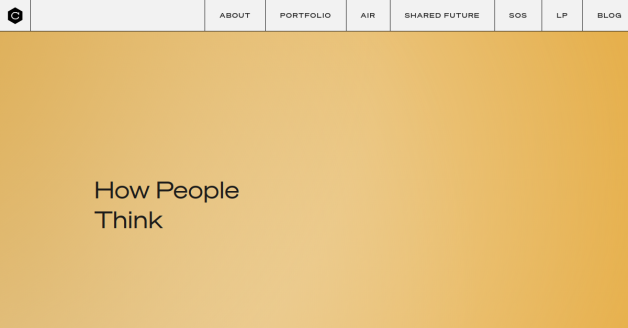Times change. People don't.
My guess is that more than half of all disagreements – personal, domestic, international, financial – would disappear if you could see the world through the lens of your opponent, and had experienced what they have in life.

By Capital Thinking • Issue #1073 • View online
One hundred billion people have walked this planet. Nearly eight billion of them are alive today.
Each has a story, few have a microphone.
How People Think
Morgan Housel | The Collaborative Fund Blog:
Each has seen something different and thought something unique. Most know something you can’t fathom, and you have experienced stuff they wouldn’t believe.
But so many behaviors are universal across generations and geographies. Circumstances change, but people’s reactions don’t. Technologies evolve, but insecurities, blind spots, and gullibility rarely does.
This article describes 17 of what I think are the most common and influential aspects of how people think.
It’s a long post, but each point can be read individually. Skip the ones you don’t agree with and reread the ones you do – that itself is a common way people think.
1. Everyone belongs to a tribe and underestimates how influential that tribe is on their thinking.
Tribes are everywhere – countries, states, parties, companies, industries, departments, investment styles, economic philosophies, religions, families, schools, majors, credentials. Everyone loves their tribe because there’s comfort in knowing other people who understand your background and share your goals.
But tribes have their own rules, beliefs, and ideas. Some of them you might disagree with; some are even abjectly terrible.
Yet they remain supported because no one wants to risk being shunned by a tribe that’s become part of their identity. So people either willingly nod along with bad ideas, or become blinded by tribal loyalty at how bad the ideas are to begin with.
2. What people present to the world is a tiny fraction of what’s going on inside their head.
The Library of Congress holds three million books, or something like a quarter of a trillion words.
All of the information accessible on the internet is estimated at 40 trillion gigabytes, which is roughly enough to hold a high-def video lasting the entire 14 billion years since the big bang.
So much of history has been recorded.
But then you remember, that’s just what’s been publicly shared, recorded, and published. It’s a trivial amount of what’s actually happened, and an infinitesimal amount of what’s gone through people’s heads.
As much as we know about how crazy, weird, talented, and insightful people can be, we are blind to perhaps 99.99999999% of it. The most prolific over-sharers disclose maybe a thousandth of one percent of what they’ve been through and what they’re thinking.
One thing this does is gives a false view of success.
Most of what people share is what they want you to see.
Skills are advertised, flaws are hidden. Wins are exaggerated, losses are downplayed. Doubt and anxiety are rarely shared on social media.
Defeated soldiers and failed CEOs rarely sit for interviews.
Most things are harder than they look and not as fun as they seem because the information we’re exposed to tends to be a highlight reel of what people want you to know about themselves to increase their own chances of success.
It’s easiest to convince people that you’re special if they don’t know you well enough to see all the ways you’re not.
When you are keenly aware of your own struggles but blind to others’, it’s easy to assume you’re missing some skill or secret that others have.
Sometimes that’s true.
More often you’re just blind to how much everyone else is making it up as they go, one challenge at a time.

